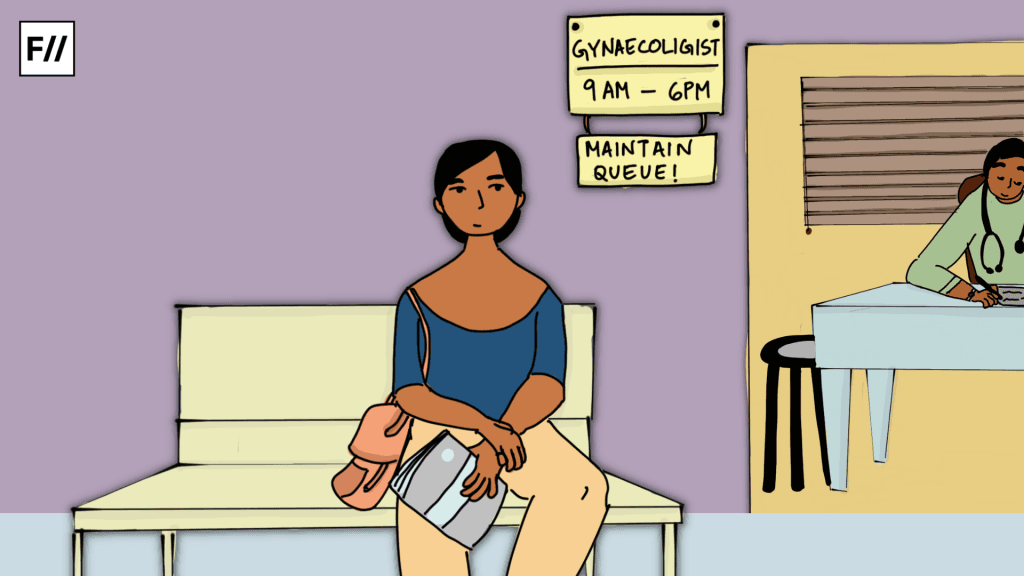The Pre-Conception and Pre-Natal Diagnostic Techniques Act, also known as the PCPNDT Act, was enacted in the year 1994 to address the social evil of female foeticide which reached its peak in the 1980s after the introduction of Ultrasound technology in the country.
The original name of the Act was the Pre-Conception and Pre-Natal Diagnostic Techniques (Regulation and Prevention of Misuse) Act and its primary provision included prohibiting sex determination of the fetus which prevented people from aborting, especially if it is a girl, and helped in maintaining a balanced sex ratio while punishing the perpetrators.
Patriarchy and misogyny supported by technology
The desire to have a ‘son rather than a daughter,’ is quite common and still prevalent across the country, especially in the Northern States such as Haryana, Punjab, and Rajasthan due to the country’s patriarchal landscape. Patriarchy has always portrayed men as superior and favoured them while neglecting women and labelling them as a ‘burden,’ who do not contribute to society due to which many people prefer to have a son over daughters. Moreover, despite the existence of the Dowry Prevention Act of 1961, the country continued to witness a high rate of dowry cases and dowry-related deaths which led to an increase in female foeticide in the form of sex-selective abortions.

Ultrasound technology was introduced in India in the 1980s as a means of monitoring the growth and development of the foetus. However, rather than using the technology for the benefit of the child and mother, it was used to detect the gender of the fetus and influence the preference of sons.
The prenatal diagnosis of the fetus led to the people getting to know the gender of the fetus which allowed them time to abort it if it was a girl which resulted in a skewed sex ratio. As per a news story done by The Scroll focusing on sex determination in India, “Back in 1981, there were 962 girls in the age group of 0-6 years for every thousand boys. This ratio fell to 945 girls in 1991, then to 927 girls in 2001, and to 918 girls by the time of the 2011 Census.”
History of the PCPNDT Act from 1994 to 2023
Even 28 years after its first enactment in 1994, the PCPNDT Act plays a crucial role in combating the social evil of female foeticide. The Act has been subjected to amendments in the years 1996, 2003, and 2011, and recently, Karnataka’s State Health Department proposed to enhance the penal clauses under the Act as well.

The PCPNDT Act, originally named the Pre-Natal Diagnostic Techniques (Regulation and Prevention of Misuse) Act of 1994, included provisions that prohibited sex determination, introduced regulations for diagnostic centres and clinics, and imposed penalties if the Act was violated. The Act specified ultrasonography among other pre-natal diagnostic techniques will not be used to determine the sex of a foetus and doing so would result in imprisonment of up to three years along with a fine of a maximum of fifty thousand rupees.
The initial sections of the Act define various terms such as embryo, foetus, genetic clinic, medical geneticist, pre-natal diagnostic procedures, pre-natal diagnostic test, and others which play a crucial role in establishing the scope of the Act while Section 3 of the Act laid down the regulations for Genetic Counselling Centres, Genetic Laboratories, and Genetic Clinics by prohibiting them from conducting any pre-natal diagnostic technique.
However, Section 4 of the Act listed some exceptional cases such as diagnoses of chromosomal abnormalities, genetic metabolic diseases, sex-linked genetic diseases, and congenital anomalies among others where Genetic counselling centres, laboratories, and clinics can conduct a fair pre-natal diagnostic test. Most importantly, the Act mandated that the pregnant women’s written consent is compulsory to conduct the test for any of the situations mentioned above.
Inclusion of pre-conception sex selection techniques
The PCPNDT Act of 1994 was subjected to minor amendments in the years 1996 as it was renamed to the Pre-Natal Diagnostic Techniques (Prohibition of Sex Selection) Act of 1996 which crystalised the intent of the Act. However, due to the technological advancements made in the medical field and the increase in the usage of techniques like sperm sorting to determine the gender of the child even before it was conceived, the Act was subjected to various amendments in 2002 which were implemented in 2003.
While the PCPNDT Act of 1994 focused only on pre-natal diagnostic techniques, the Pre-Natal Diagnostic Techniques (Prohibition of Sex Selection) Act of 2003 went on to include pre-conception sex selection techniques such as In Vitro Fertilisation (IVF) and Sperm Sorting. The PCPNDT Act of 2003 also made it mandatory for all medical centres and clinics to register their pre-natal diagnostic tools such as ultrasound machines and keep detailed records of all the medical procedures and tests conducted by them to maintain transparency and hold medical professionals accountable.
In addition to this, the PCPNDT Act of 2003 banned the advertisement of any type of sex determination or sex selection techniques. Lastly, it increased the penalty of violation from three years to five years of imprisonment and a maximum fine of one lakh rupees.
Online records, accountability, and compliance with the law
Lastly, the PCPNDT Act was amended in 2011 with a focus on accountability and even stricter enforcement of the law. Some key amendments made in 2011 include making it mandatory for diagnostic centres and clinics to submit all ultrasound and diagnostic test records online so that it can monitor who complies with the law and who does not. In addition, the PCPNDT Act of 2011 also authorised surprise raids and inspections at diagnostic centres and clinics if they are suspected of violating the law or operating without complete registration.

As of now, the Pre-Natal Diagnostic Techniques (Prohibition of Sex Selection) Act of 2011 is in action and since it is a Central Act, it can not be amended or modified by the State or solely based on any recommendations put forth by any State. In May 2024, after multiple sex determination cases, and arrests across multiple districts of Bengaluru, Mandya, and Mysuru, Karnataka’s State Health Department proposed to enhance the penal clauses under the PCPNDT Act.
The Health Department proposed to make the offences non-bailable and increase the fine to five lakh rupees so that people who are involved can not get away with the crime by paying an amount which is not substantial to them. The requirement of a State Health Department suggesting stringent amendments to an Act which has been in existence for more than 30 years sheds light on the prevalence of female foeticide in the country despite having strong laws such as the PCPNDT Act and the state’s incompetence in being able to resist it.
While the country has been making waves of advancements, especially in the field of technology, there is a need to ensure that it is not used to foster social evils such as female foeticide. Despite strict laws, the preference of sons in Indian families is quite common which gives rise to gender inequality and normalises the oppression of women by defending it through society’s structure. There is a need to reform society and the various institutions like that of family and marriage so that the patriarchial landscape of the country is altered and an egalitarian society is formed.
About the author(s)
Neha (She/They) is a neurodivergent queer writer who illustrates occasionally. A student of media and gender studies, Neha is critical of the patriarchal and heteronormative world around her and looks at it from the political lens of intersectionality. Although socially introverted, you can find Neha getting out of her shell and interacting with people, getting to know their experiences, and analyzing how the biased structure of the society impacts the marginalized.





